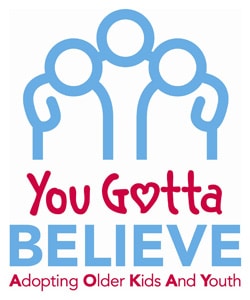Story by Amy Kolz
Photography by Alejandra Villa
Shirley Newman is a consistent mother. A former foster child, the 29-year-old mother keeps her three children on a rigid daily schedule: school, snack time, homework, dinner and bath. Most importantly, Shirley’s children, ranging from agesfour to eleven, can count on her constant presence. “I’m the first thing they see when they wake up and the last thing they see when they to bed,” she says proudly. “I’m always there, and my kids know that,” she says.

Shirley had a far different upbringing. She was only three years old when her mother left her with her drug-addicted father, and took Shirley’s two younger siblings with her. Shirley and her father moved in with his girlfriend, Marie, an alcoholic who was just as abusive as Shirley’s father. When Shirley was eight, neighbors reported the abuse, and Shirley was placed briefly with an elderly Korean couple, an event she remembers mostly for its jarring confusion. “I remember being taken out of school by total strangers and having to sit all day in a tall building near the Grand Concourse [in the Bronx], and the next thing I knew I was on Long Island,” she says. Ten months later she was taken back to her father without an explanation. “I was just a puppet on a string; I was so used to being pulled wherever I was told,” she recalls.
Shirley remained in her father’s care for the next five years, but his presence was sporadic and destructive. After Marie died, her father would disappear for months at a time, often leaving Shirley with strangers: she remembers staying in houses with no electricity and sleeping in cars. When her father was around, he was high and often violent. He was arrested for stealing jewelry from his then-girlfriend when Shirley was fourteen and spent a few months in jail. Upon his return he threw Shirley down a flight of stairs during an argument, knocking her unconscious. She reported him to social services and was removed from his care, and fortunately, this time it was for good.
But Shirley’s next foster home was no less chaotic. She went on to live with an older woman named Theresa, who cared for a revolving cast of five to six teenage girls, including relatives, an adopted child and two other foster children. There were few rules, and many of the girls would come and go as they pleased. After just nine months, Shirley moved again, joining the family of a friend in Queens, an environment that was more stable.
Shirley, however, began acting out. She associated with the ‘wrong crowd,’ and began drinking and using drugs. “I didn’t care what anyone said. I felt like the world was against me,” she says. Having never been given the safety of rules and boundaries she began to rebell against authority. “I was horrible. I was always saying, ‘Who are you to tell me what to do? You don’t know me, you don’t own me,” she says. She fought with her foster mother Randi and moved in with Randi’s mother Cybil. Then at age 17, Shirley became pregnant.
Shirley gave birth to her daughter Kayla a week before her 18th birthday. Two months later Shirley accidentally gave Kayla a spiral fracture while trying to relieve her colicky daughter’s gas with a leg manipulation. Kayla was taken away, and Shirley was moved to another foster family for four months. Shirley cleared her name in court and got her daughter back, and yet again was placed in a new environment, joining a caseworker named Mary in her home in Yonkers.
Mary has been more of a “mom” to Shirley than anyone else in her life. Unfortunately, Shirley has continued to have more than her share of challenges over the past decade. After aging out of the foster care system at 21, she had two more children, Brandon, 6, and Dylan, 4, with a boyfriend and moved to Florida. The relationship became mentally and physically abusive, and Brandon was diagnosed with autism. In September 2009 Shirley found the courage to leave. Mary bought plane tickets for Shirley and her kids, and the trio moved back to New York, living in a series of domestic abuse shelters.
Shirley, now a single mom, is trying to give her children the security and attention that she never had as a child. “I’m strict with them,” she admits, noting that she doesn’t hesitate to yell at her children in front of strangers if they misbehave. “I know what it’s like to not have rules, or to have rules and have them be ignored.” But she’s just as careful to reward good behavior and to listen closely. “My kids tell me everything,” she says with pride. “That’s something I never had growing up.”
Shirley still hasn’t given up on the dream of finally claiming a mother of her own. A year ago she began the process of being adopted by Mary. “I always grew up thinking that no one wanted me, that I was too old to be adopted,” she says. But for more than a decade, Mary has lent Shirley an open ear and a willingness to always see the good in her. “She’s always been the one I run to,” Shirley says. “So I thought, why not?”






